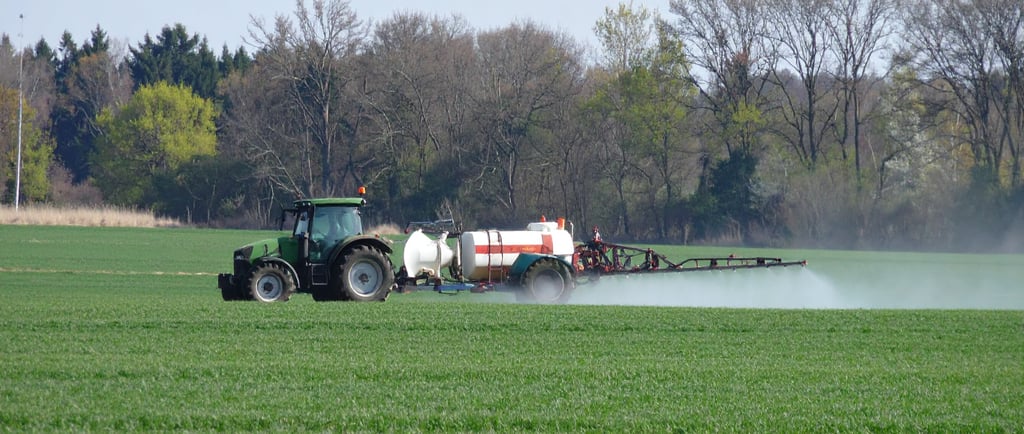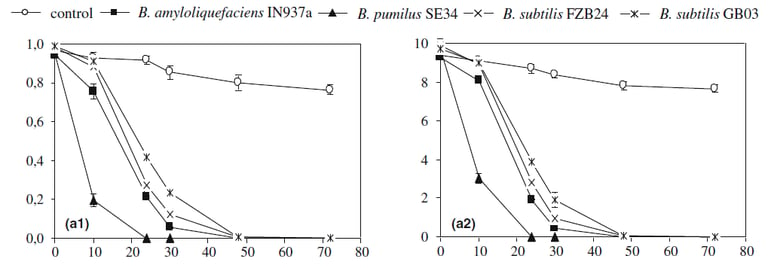PGPR Bacteria — Cleaning Pesticides While Boosting Crop Growth
1 min read


Can a microbe both protect plants and clean up our soil? The answer is yes — thanks to Plant Growth-Promoting Rhizobacteria (PGPR).
PGPR are well-known for improving nutrient uptake and boosting plant immunity. But there's another superpower that deserves more attention: accelerating pesticide degradation in soils.
A study published in Journal of Agricultural and Food Chemistry (2011) evaluated several Bacillus strains:
Bacillus subtilis GB03, FZB24
B. amyloliquefaciens IN937a
B. pumilus SE34
The target pesticides
Acibenzolar-S-methyl
Metribuzin
Napropamide
Propamocarb HCl
Thiamethoxam
The results were striking
Degradation rates for acibenzolar-S-methyl were up to 5–6 times faster than control soils.
Soil half-lives dropped from >34 days to as low as 9–16 days.
Bacillus strains also enhanced the breakdown of other compounds, including neonicotinoids like thiamethoxam.
Dual benefit
The same bacteria that reduce pesticide residues also act as plant growth promoters, improving root development and stress resistance.
Additional twist
These Bacillus strains actually thrived in pesticide-contaminated environments, meaning they can be co-applied with certain chemical treatments to mitigate residual risks.
Why it matters
Instead of choosing between synthetic crop protection and biological soil health, PGPR offer a hybrid strategy: protecting yields and detoxifying soils at the same time.
Sources: Zhang et al., Journal of Agricultural and Food Chemistry, 2011


Innovation & Technology
Probiotic soil activators for sustainable agriculture.
Contact
Newsletter
office@solvaterra.com
© 2025. All rights reserved.
